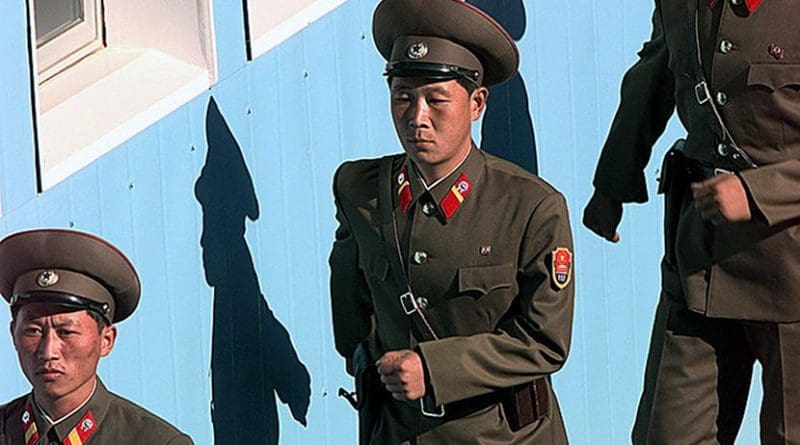EU Calls For ‘Peaceful, Not Military’ Solution To Korea Crisis
By EurActiv
(EurActiv) — The European Union’s foreign policy chief on Monday (14 August) called for “peaceful, not military” means to resolve the Korean peninsula crisis, urging Pyongyang to avoid any “further provocative action” that could stoke tensions.
“At such a critical juncture, the European Union supports diplomatic work with our partners aimed at the de-escalation of the situation and achieving the complete, verifiable and irreversible denuclearisation of the Korean Peninsula through peaceful, not military, means,” Federica Mogherini said in a statement.
The statement was issued after a meeting of a key EU panel which agreed the bloc would reach out to North and South Korea, the United States, China, Russia and Japan.
The 28-nation EU has steadily increased asset freezes and travel bans on North Korea over its repeated violation of UN resolutions on its nuclear and ballistic missile programmes.
“There is an urgent need for a de-escalation of tensions on the situation on the Korean Peninsula,” Mogherini said.
“(…) We therefore call on the Democratic People’s Republic of Korea (DPRK) to refrain from any further provocative action that can only increase regional and global tensions.”
North Korea’s “continued acceleration” of its nuclear and ballistic missile programmes “constitutes serious and worrying violations” of its international obligations, Mogherini warned.
Tensions have been mounting since the North’s two intercontinental ballistic missile tests last month, which appeared to bring much of the US within range.
Its military said last week that it would finalise by mid-August its detailed plan to test-fire four intermediate-range ballistic missiles in an “enveloping fire” around the US Pacific island of Guam.
On Tuesday, Pyongyang’s state media said North Korean leader Kim Jong-un “examined the plan for a long time” and “discussed it” with commanding officers.

